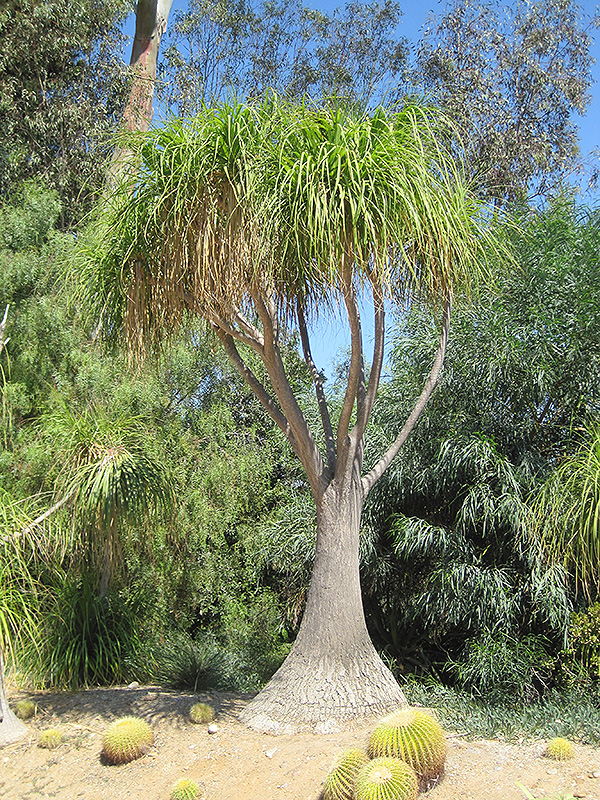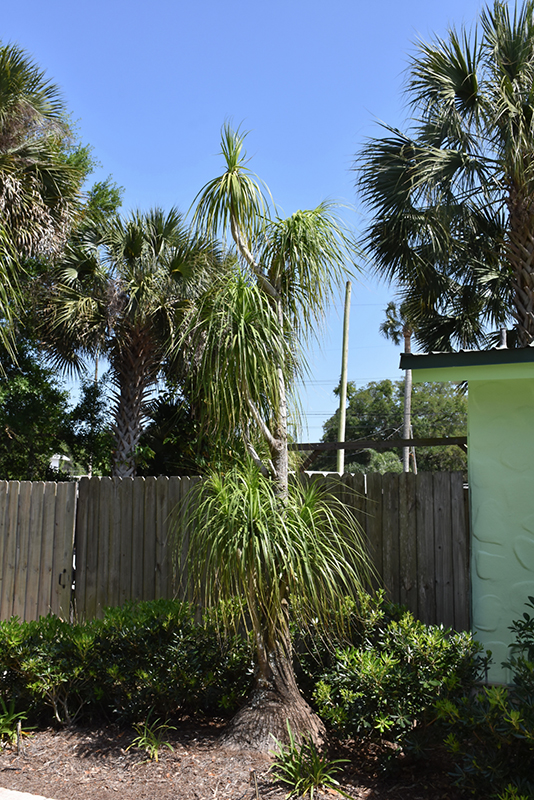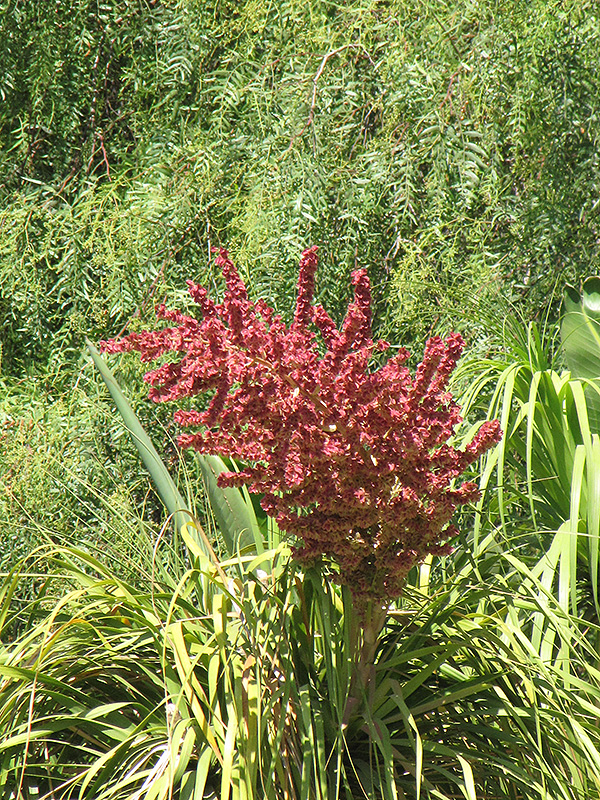Height: 20 feet Spread: 15 feet
Sunlight:
Hardiness Zone: 10a Other Names: Ponytail Palm, Elephant's Foot, Bottle Palm Description: A stunning accent plant that develops a swollen base over time, under rising tufts of narrow green leaves; must be very old to bloom; water deeply but infrequently; protect from frost; an excellent container plant that can be brought in for winter Ornamental Features Pony Tail Palm has attractive green evergreen foliage on a tree with a weeping habit of growth. The glossy narrow leaves are highly ornamental and remain green throughout the winter. The smooth gray bark adds an interesting dimension to the landscape. Landscape Attributes Pony Tail Palm is an evergreen plant with a rounded form and gracefully weeping . Its average texture blends into the landscape, but can be balanced by one or two finer or coarser trees or shrubs for an effective composition. This is a relatively low maintenance plant, and should not require much pruning, except when necessary, such as to remove dieback. It is a good choice for attracting birds to your yard, but is not particularly attractive to deer who tend to leave it alone in favor of tastier treats. It has no significant negative characteristics. Pony Tail Palm is recommended for the following landscape applications; Planting & Growing Pony Tail Palm will grow to be about 20 feet tall at maturity, with a spread of 15 feet. It has a low canopy with a typical clearance of 6 feet from the ground, and is suitable for planting under power lines. As it matures, the lower branches of this tree can be strategically removed to create a high enough canopy to support unobstructed human traffic underneath. It grows at a slow rate, and under ideal conditions can be expected to live for 80 years or more. This plant does best in full sun to partial shade. It prefers dry to average moisture levels with very well-drained soil, and will often die in standing water. It is considered to be drought-tolerant, and thus makes an ideal choice for xeriscaping or the moisture-conserving landscape. It is not particular as to soil pH, but grows best in sandy soils. It is somewhat tolerant of urban pollution. This species is not originally from North America.. Pony Tail Palm is a fine choice for the yard, but it is also a good selection for planting in outdoor pots and containers. Because of its height, it is often used as a 'thriller' in the 'spiller-thriller-filler' container combination; plant it near the center of the pot, surrounded by smaller plants and those that spill over the edges. It is even sizeable enough that it can be grown alone in a suitable container. Note that when grown in a container, it may not perform exactly as indicated on the tag - this is to be expected. Also note that when growing plants in outdoor containers and baskets, they may require more frequent waterings than they would in the yard or garden.![]()
![]()
![]()
![]()
![]()
![]()
![]()
![]()
![]()
![]()
![]()
![]()
top of page
Louie's Nursery Menifee - Plant Finder
Characteristics
Applications
Features & Attributes
This tool is an online resource representing many of the varieties that we carry over the course of the season, and is intended for informational purposes only. Inventory varies seasonally, so we cannot guarantee that every plant will be in stock at all times - please contact the store directly for current availability. It does not include our entire selection of plants, so be sure to visit our store to see varieties that may not be represented on this list.
bottom of page


